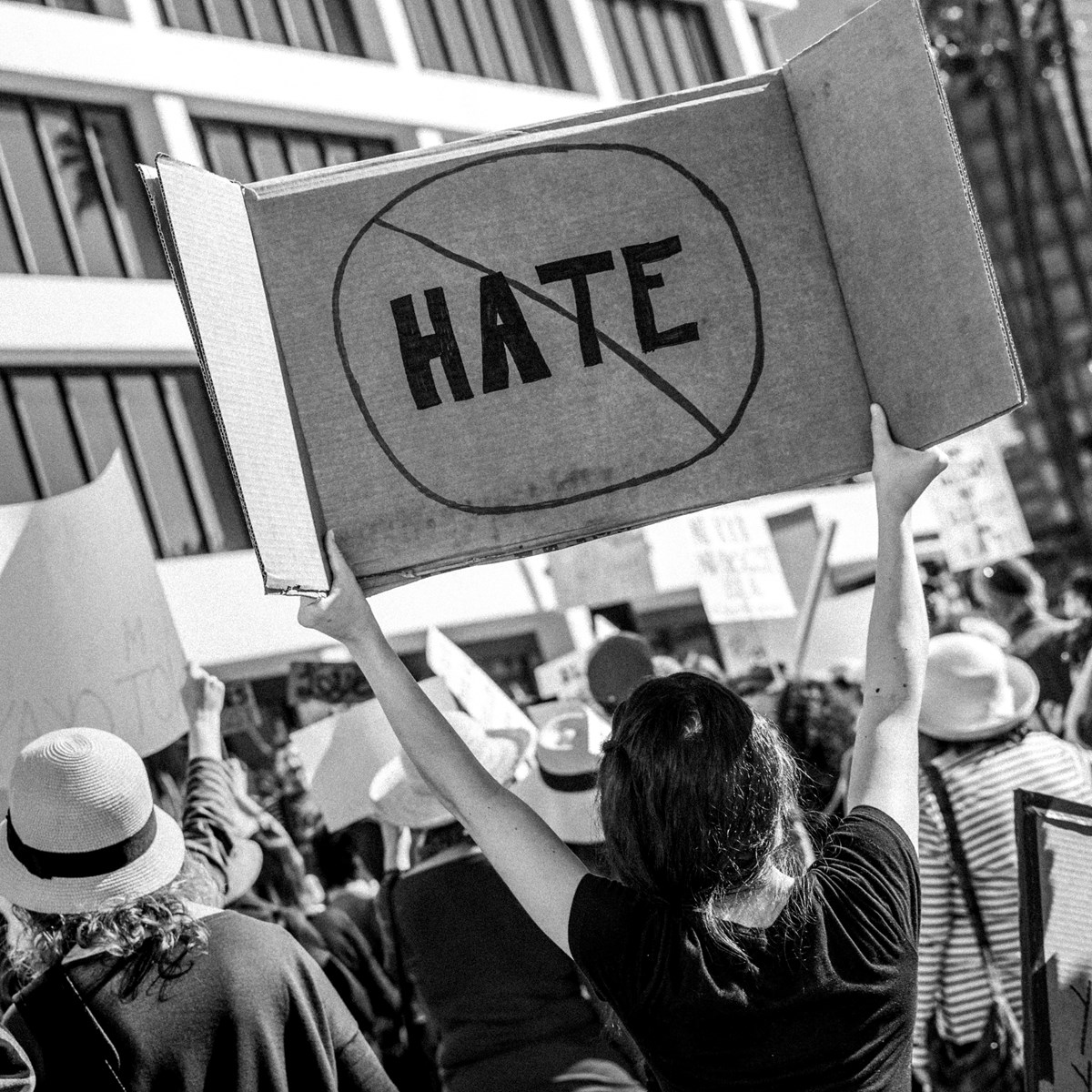To hear it from the political commentariat and the increasingly hyperbolic denizens of the World Wide Web, one would be forgiven for thinking that America in the 21st century is home to a population consumed with chthonic feelings of deepest hatred. Everywhere one goes, the accusation is leveled. Virtually no opinion is immune from the epithet “hateful.” The haters gonna hate, Taylor Swift amelodically squawks, condemning with broad strokes all those who don’t enjoy her particular brand of musical self-pity.
Toward what is this alleged hate directed? You name it. The poor, immigrants, African-Americans, homosexuals, trans-gender individuals, Democrats, Republicans, Hispanics, the disabled, millennials, women, even children—all are reportedly victims of passionate abhorrence by the average Joe who dares voice an opinion contrary to those approved by professors and public intellectuals.
In fact, the term “hateful” is used so often and applied so broadly, I’m forced to wonder whether anyone still remembers what it means. When I was a child, my parents cautioned me against the use of the word. “Hate is a very strong word,” they would say, and they were right. It is a violent term for a violent emotion, a feeling of profound antipathy, loathing, and revulsion. And just as feeling that emotion too often can be dangerous, so can throwing the term around too casually.
In reality, there is a lot less hate floating around than you might think. Most people I talk to seem pretty cheerful, and even those with a temperament tending more towards depressive gloom about the state of the world don’t seem to harbor any real hatred for others. For my own part, the ratio of times I’ve actually felt anything akin to hatred for my fellow humans to the number of times I’ve been accused of hatred comes to roughly zero.
All of this invites an important question: If there is not an epidemic of hate, why are these accusations so common?
The answer is that the word “hate” has simply become a rhetorical trick used to delegitimize opposing opinions and prevent us from having to honestly engage with the other side’s point of view.
Artists and entertainers describe those who don’t like what they do as “haters” because it’s easier to dismiss criticism as irrational than use it as an opportunity for self-improvement. Activists and ideologues use the same trick when they are insecure in their own positions and fear to intellectually engage with anyone not already in their camp. If you can ascribe hatred to your interlocutors, you don’t have to answer what may be perfectly valid objections to your worldview; you don’t even have to listen to them. What better way to maintain our bubbles of unanimity and moral certitude than to pretend everyone outside it is an evil misanthrope?
But pretending something doesn’t make it so, and the fact is that differences of opinion are not automatically accompanied by negative emotions. It is possible, contrary to a recent exchange I witnessed, to believe that biological sex is more than a social construct without being consumed by hate. It is possible to believe that less immigration would be good for the country without hating Hispanics. It is possible to believe in the preservation of traditional marriage and the nuclear family without hating gay people or single mothers. It is possible to question the morality of abortion without hating women.
I agree with some of the above positions and disagree with others, but I’m self-aware enough to recognize that deviation from my own position does not automatically constitute hatred for me and all the values I hold dear. In some cases, the other side might have compelling points that I need to address, or at least think about, before digging my heels in on my own point of view.
The problem, as I see it, is not that there is too much hatred, but that there is too little willingness to debate ideas honestly without ascribing bad motives to the other side. You may not understand why some people believe what they do, but as long as you dismiss them as hateful rather than listening to them, you’re never going to understand.
This matters not just for the sake of civility and bridging the partisan divide to achieve some hypothetical kumbaya moment; it matters for very practical reasons of effectiveness in advancing policy and cultural progress. If you want people to understand and ultimately sympathize with your point of view, screaming that everyone who disagrees is a hateful bigot is a pretty unconvincing method. If you want people to understand the plight of trans people and the struggles and prejudices they face, name calling isn’t going to cut it. That’s not how understanding and tolerance are built.
Look at the comparatively rapid progress that has been made in gay rights, culminating in the federal legalization of gay marriage. It was only a few years earlier that even progressive heroes like Barack Obama and Hillary Clinton were publicly opposed to the idea.
How did it change so fast? Not through bullying and name calling, but through normalization of homosexuality through outreach and conversation. It’s hard to view gay people as depraved sinners in the abstract when they are your friends, neighbors, and colleagues. Increasingly, frequent contact and friendly interactions led all but the most entrenched to recognize that gay people are just people, deserving the same rights and dignities as everyone else.
This method can work with other minority groups as well. The surest way to decrease hostility towards immigration is to become friends with immigrants. The best way to decrease confusion about trans people is to make a trans friend and talk to them. This isn’t going to happen, however, if anyone displaying even a shred of hesitation is instantly demonized and shouted down as a hateful bigot. It’s not only rude, it’s counterproductive.
So please, let’s stop calling everyone who disagrees with us a hater, and start trying to actually talk to them. If you take the time to find out why they disagree, you may be able to show them the error of the ways. Or who knows? Maybe they’ll surprise you and show you the error of yours.

